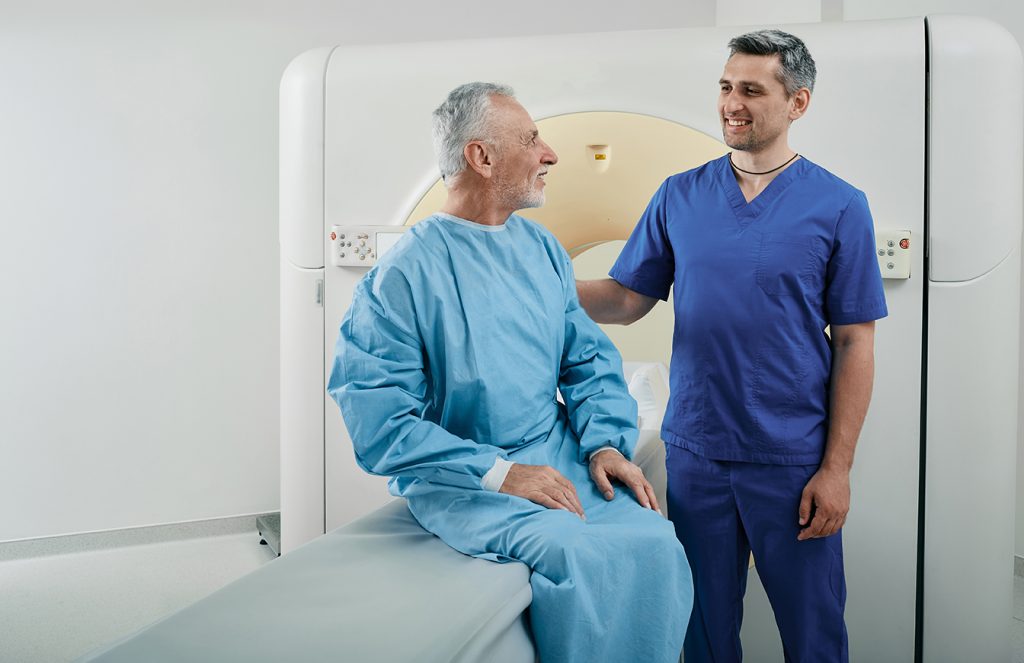Scheduling Your Exam Time
At Open Air MRI of Lake Charles, we want to make your imaging experience as comfortable and stress-free as possible. Scheduling your appointment is quick and easy! You can call our office, and our friendly staff will assist you in finding a convenient time that fits your schedule. We also offer flexible appointment options to accommodate your needs, and our team of experts is available to answer any questions you may have before your procedure.
FAQ
You can schedule your appointment by calling our office directly at 337-474-3333, and our staff will help find a convenient time that fits your schedule. Or you can fill out of online contact form below and one of our team members will reach out to you.
Yes, a referral from your healthcare provider is generally required for an MRI. Your primary care physician will provide the necessary documentation, which you’ll need when scheduling your appointment. If you have any questions about the referral process, our staff is happy to assist you with any questions or to walk you through the process.
The length of an MRI procedure can vary, but most scans take between 30 to 60 minutes. Before the procedure, we will give you an estimate of how long your scan will take. While some exams may be shorter or longer, we strive to complete each scan as efficiently as possible while ensuring high-quality results.
During this non-invasive procedure, patients lie on a padded table that moves into a spacious, open MRI machine. You may hear sounds from the machine during the scan, but ear protection will be provided for your comfort. Our technologists will monitor the entire process to ensure safety, and a certified radiologist will interpret results.
When You Arrive
Before your MRI, it’s important to talk with our staff about any medical conditions, implants, or devices – such as pacemakers or metal implants – as metallic objects can interfere with the procedure. Please bring a valid ID, your insurance information, and any relevant medical documentation or referrals. Our team will review your paperwork and answer any questions you may have before your procedure.
Patients will be instructed to remove all metal objects, including jewelry, watches, and piercings, before the scan. We recommend wearing comfortable, metal-free clothing or changing into a provided gown if necessary.


1.5T High Field MRI
The 1.5T High-Field MRI offers exceptional image clarity, making it one of the most reliable tools for accurate diagnostics. Its strong magnetic field provides detailed images of internal structures, helping healthcare providers detect conditions or irregularities with precision. Quick scans improve patient comfort and reduce overall time spent in the MRI machine.
FAQ
Yes, the MRI machine can be noisy during the scan, but you will be provided with ear protection to minimize discomfort. The sounds are a normal part of the imaging process and do not affect the quality of the results.
A scan with a 1.5T High-Field MRI usually takes between 30 to 60 minutes, depending on the area being examined and the specific imaging requirements. Our staff will provide you with an estimated duration when you schedule your appointment.
Yes, MRI is a safe procedure for most people as it does not use ionizing radiation, unlike X-rays or CT scans. However, individuals with specific types of metal implants, pacemakers, metal fragments in their body, or certain health conditions should notify their doctor before the scan.
1.2T High-Field Open MRI
The 1.2T High-Field Open MRI combines strong imaging capability with an open design, offering both high-quality images and a more comfortable experience for patients. Its open structure reduces feelings of claustrophobia, making it ideal for individuals who may be anxious in traditional MRI machines. The high-field strength ensures detailed and precise diagnostic results while prioritizing patient comfort.
FAQ
No, the design of the Open MRI machine does not compromise image quality but can increase patient comfort during the procedure. The open design provides claustrophobic patients with a less enclosed space to lie for the exam, and the image resolution is not affected.
Yes. Like other traditional MRI machines, the Open MRI can produce some noise during the scan. Patients will be provided with ear protection to reduce audible noises and enhance comfort. The sounds are a normal part of the MRI process and do not impact the imaging quality.
With both traditional and Open MRI, scans generally take between 30 to 60 minutes depending on the specifics of the examination. Our team will provide you with a more precise time estimate when you schedule your appointment.
MR Arthrogram
An MR Arthrogram enhances the imaging of joint structures by using a contrast dye injected into the joint, which improves the visibility of cartilage, ligaments, and tendons. This detailed imaging allows for a more accurate diagnosis of joint issues that may not be visible with standard MRI scans. The procedure provides comprehensive insights into joint conditions, aiding in effective treatment planning and better outcomes.
FAQ
An MR Arthrogram is a specialized imaging procedure that involves injecting a contrast dye into a joint to enhance the visibility of internal structures like cartilage, ligaments, and tendons. Unlike a standard MRI, which provides general imaging, an MR Arthrogram offers more detailed views of joint abnormalities.
Yes, the contrast dye used in an MR Arthrogram is considered safe and well-tolerated. Our staff will ensure that the dye is administered carefully and will monitor you for any reactions during the procedure.
Patients with allergies should talk with their healthcare provider before undergoing an MR Arthrogram or an MRI procedure. It’s important to discuss any known allergies, especially to contrast dyes or medications, to ensure appropriate precautions are taken.
An MR Arthrogram typically takes about 30 to 45 minutes, depending on the complexity of the joint being examined. This includes the time required for injecting the contrast dye and capturing detailed images.
During the procedure, patients may experience some mild discomfort from the injection of the contrast dye, but the procedure is generally well-tolerated. Afterward, there may be some swelling or soreness in the joint, which usually resolves quickly. Our team will provide you with post-procedure care instructions and discuss any necessary follow-up.
